Microplastics Policies & Research Around the Globe Training
Sponsored by: Interstate Technology and Regulatory Council (ITRC) & Australasian Land and Groundwater Association (ALGA)
The Interstate Technology and Regulatory Council (ITRC) together with the Australasian Land and Groundwater Association (ALGA) is holding an expert panel on the latest news on microplastics policies, regulations, and research from both the US, Australia, and other countries. The Panel will include two US speakers and two Australian speakers. The Panel will compare and contrast different country responses and have a discussion on next steps for microplastics. Time will be allotted for audience questions and answers.
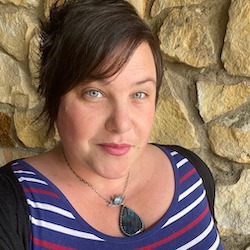 Valerie Hanley, California Department of Toxic Substances Control (Valerie.Hanley@dtsc.ca.gov)
Valerie Hanley, California Department of Toxic Substances Control (Valerie.Hanley@dtsc.ca.gov)
Dr. Valerie Hanley is a Senior Toxicologist in the Human and Ecological Risk Office at the California Department of Toxic Substances Control (DTSC) in Sacramento, CA and the co-leader of the ITRC Microplastics Team. Valerie has been with DTSC since 2008 and an active participant of ITRC since 2015. Valerie evaluates human health risk assessments for a variety of sites and is involved in DTSC's Safer Consumer Products program. Valerie earned a Bachelor's degree in Molecular, Cellular, and Developmental Biology from The University of California (UC) Santa Cruz in 2001 and her PhD in Comparative Pathology from UC Davis in 2007. She completed a postdoctoral fellowship at UC Davis in Respiratory Toxicology in 2008.
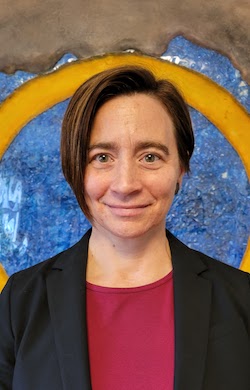 Kim Nimmer, City of Raleigh, City Manager's Office (Kim.Nimmer@raleighnc.gov)
Kim Nimmer, City of Raleigh, City Manager's Office (Kim.Nimmer@raleighnc.gov)
Kim Nimmer is an environmental program consultant with over 25 years of professional experience in a variety of sectors and programs. She is co-leader for ITRC’s Microplastics Team and is also co-leading a group on ITRC’s Contaminants of Emerging Concern Team. Kim has been with the North Carolina Department of Environmental Quality, Division of Water Resources (NC DWR) since 2003. During that time, Kim has served as DWR’s first Emerging Compounds Coordinator; the Interbasin Transfer Program Coordinator, regulating the movement of large volumes of water between the state’s river basins; and grant program manager of the federal 319(h) grant from the U.S. Environmental Protection Agency, which supports the protection and restoration of waters impaired by nonpoint source pollution. Kim has worked in private consulting, the nonprofit sector, and Wisconsin state government, working on stream restoration projects, site assessments for Superfund and Brownfields sites, and the development of state technical standards for soil and water conservation practices. Kim holds an M.S. in Water Resources Management from the University of Wisconsin at Madison and a B.S. in Geology from the University of North Carolina at Chapel Hill.
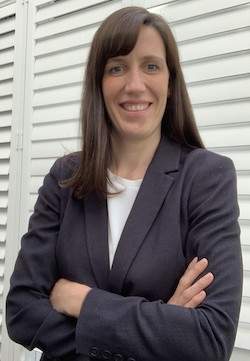 Julia Jaeger, Eurofins (juliajaeger@eurofins.com)
Julia Jaeger, Eurofins (juliajaeger@eurofins.com)
Dr. Julia Jaeger is a Technical Specialist at Eurofins Environment Testing Australia & New Zealand. Julia graduated with a Master in Food Chemistry and holds a PhD in Physical Chemistry. In the past 10 years, she has worked in different sectors, ranging from atmospheric chemistry to food and forensics strengthening her knowledge in Analytical Chemistry. In 2019, she has set up a laboratory for commercial microplastic testing utilizing the Laser Direct Infrared (LDIR) Chemical Imaging System. Furthermore, she developed methods for the analysis of microplastics in different environmental and food matrices. Furthermore, Julia has expertise in the analysis of organic contaminants, especially VOCs and pesticides utilizing Mass Spectrometry.
 Kevin Thomas, Queensland Alliance for Environmental Health Sciences (QAEHS) (kevin.thomas@uq.edu.au)
Kevin Thomas, Queensland Alliance for Environmental Health Sciences (QAEHS) (kevin.thomas@uq.edu.au)
Professor Kevin Thomas is Director of the Queensland Alliance for Environmental Health Sciences (QAEHS) at The University of Queensland, Australia. Kevin is an environmental health scientist with a particular interest in understanding the environmental exposures associated with contaminants of emerging concern (CECs) with the goal of protecting environmental and human health.
His current research is focused on understanding human exposure to plastics pollution and developing mass spectrometric analytical methods for characterizing plastics and other CECs. His team is focused on better understanding how plastics cycle in the environment with the aim of reducing exposure. Other interests include assessing community-wide health status through analyzing wastewater (wastewater-based epidemiology), establishing alternative approaches to exposure monitoring, for example explanted silicone prostheses and wristbands. Author of over 300 peer-reviewed papers and Associate Editor for the journal Science of the Total Environment, Kevin is a strong collaborative researcher having founded the international SCORE network on sewer biomarker analysis for community health assessment (see www.score-network.eu).
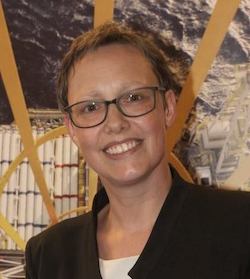 Sophie Claes, ERM (sophie.claes@erm.com)
Sophie Claes, ERM (sophie.claes@erm.com)
Sophie Claes is Consulting Director at ERM with over 25 years of extensive experience in project management in national and international projects across different services (soil and groundwater projects, global audit programs, global monitoring programs, operational performance projects,…) for a wide variety of clients.
Sophie is currently managing a number of multi-year global programs for industrial and other clients as for example and CES (Specialty Chemicals Sector Group of Cefic) and the WBCSD (Tire Industry Project). Through those projects, Sophie has built experience with evaluating impact, risk and fate & transport of industrial chemicals and microplastics in the wider environment.
As project manager Sophie is responsible for scheduling, budget tracking, invoicing, resourcing, risk and change management and follow up of the timing and quality of deliverables for those projects.
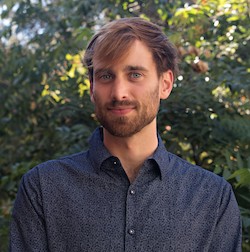 Scott Coffin, California State Water Resources Control Board (Scott.Coffin@waterboards.ca.gov)
Scott Coffin, California State Water Resources Control Board (Scott.Coffin@waterboards.ca.gov)
Dr. Scott Coffin is a research scientist and subject-matter expert for microplastics at the California State Water Resources Control Board, where he leads the agency's efforts to monitor and manage microplastics pollution in drinking water and the environment. Dr. Coffin led international working groups to standardize analytical methods and develop risk-based thresholds for humans and aquatic ecosystems for microplastics. Dr. Coffin also serves as an editor for the Frontiers in Water, and Cambridge Prisms: Plastics journals and is the chair of the Research Committee for the California-Nevada section of the American Water Works Association. Dr. Coffin has been researching microplastics' effects on aquatic organisms and humans since 2014, starting with his graduate research in environmental toxicology at the University of California, Riverside.
Moderators:
 Patricia Catherwood Reyes, Interstate Technology and Regulatory Council (ITRC)
Patricia Catherwood Reyes, Interstate Technology and Regulatory Council (ITRC)
Patricia Catherwood Reyes has been the Director of the ITRC since October 2015. Patty is a recognized leader in environmental sustainability and energy with experience at the federal, state and congressional levels targeting technology transfer, stakeholder outreach, and policy development. Ms. Reyes is a senior manager with broad knowledge of federal agency processes: budgeting; planning; communications; information and risk management; and training. Previously, Patty served as a Presidential appointee and senior advisor to the Deputy Under Secretary of Defense for Environmental Security providing policy recommendations and strategic advice on the Departments' environment, safety and occupational health communications with Congress, States, federal agencies, industry, non-government organizations and the public. Ms. Reyes also served as an environmental analyst at the Congressional Office of Technology Assessment and at the National Governors' Association, during which she participated in a detail to the U.S. Environmental Protection Agency for State cleanup programs. Patty holds an MPA degree in Environmental Systems from the American University, Washington, D.C.
Matthew Potter, Australasian Land & Groundwater Association (ALGA)
Matthew Potter has been the Chief Executive Officer of ALGA since June 2022. Matther has 23 years of experience in the environmental services industry. Over his career he has worked across many facets of industry, including as a Consultant, Victorian Government employee, and contractor. This unique experience enables Matthew to intimately understand the needs of the various stakeholders and how to deliver the best outcome for its clients. Prior to joining ALGA, he was the Environmental Services Manager at HydroTerra where he oversaw the scoping, design, installation and maintenance of all of the environmental monitoring service delivery projects.
- These materials will be available by
Webinar Slides and References:
- These materials will be available by
Additional Resources:
Thank you for participating in our webinar. We would like to receive any feedback you might have that would make this service more valuable.
Help & FAQs
- Frequently Asked Questions
- Content Questions?
Call ITRC Training Program at 202-266-4932 or itrc@itrcweb.org - Technical Problems?
Leave us a comment - Cancel Your Registration
- My Participation Records
- CEU Credits and PDHs
Zoom Resources
Before Webinar Day
This seminar will be delivered through Zoom. Participants are encouraged to update to the latest version of the Zoom application for the best experience.
If you are unable to install the Zoom application, most functions will be available if you join just using a modern web browser such as Chrome, Edge or Firefox. We strongly encourage you to run the Zoom Meeting Test prior to attending this webinar. Technical support on the day of the webinar will be very limited and subject to significant delays.
Backup Conference Call
If you cannot participate using online audio, you may join the optional call in line. After checking in for the live event using the instructions listed below, you will see several options to participate. Please click the links in option 4 to follow along by phone and obtain the call in number. If you cannot access the phone number, you may request the call in line from the event moderator in the Q&A or send an email to Jean Balent at balent.jean@epa.gov
Click on "Join Webinar" at the top of this screen, enter your exact first and last name as you registered and enter the number of people attending at your location (including yourself). You should then be taken to the Zoom meeting room. Join with Zoom Application: For those joining with the Zoom application, you may be prompted to sign with a zoom account or join as a guest without signing in.
If joining as a guest, you will be prompted to enter your name and email address. Remember your name, image, video or voice may be visible to others in the live event. When done, click "Join" When it is time for the live event to start, the meeting host will admit you to the live Zoom meeting. Join via web browser (without the Zoom Application): For those joining with a web browser, you may close any pop ups prompting you to download the Zoom app. The next window will allow you to enter your name (first name and last name) and check the box that you are not a robot. Click the blue join button. You may also be asked to provide your email address before joining the room. Remember your name, image, video or voice may be visible to others in the live event. When done, click "Join" When it is time for the live event to start, the meeting host will admit you to the live Zoom meeting. You may need to periodically refresh the browser window to confirm if the host has admitted you. The presenters will control what slide you are viewing. You may submit questions online for the instructors to answer during the webinar by typing in the "Q&A" area. It is not necessary to wait until the question and answer periods to submit questions. At the end of the webinar you will be guided to our feedback form and links to additional resources, including the complete presentation. These links will remain active after the webinar. Provided for your convenience. Importing or accepting the invitation within this iCalendar file is not required, and declining the invitation does not cancel your registration. For additional information on iCalendar, please see our
iCalendar Help It is EPA's policy to make reasonable accommodation to persons with disabilities wishing to participate in the agency's programs and activities, pursuant to the Rehabilitation Act of 1973, 29 U.S.C. 791. Any request for accommodation should be made to at or , preferably one week or more in advance of the seminar, so that EPA will have sufficient time to process the request. EPA would welcome specific recommendations from requestors specifying the nature or type of accommodation needed. EPA welcomes specific recommendations from requestors specifying the nature or type of accommodation needed. Please note that CLU-IN provides both alternate phone call-in options and closed captioning for all webinars, and requests for these specific accommodations are not necessary.
Webinar Day, Checking In
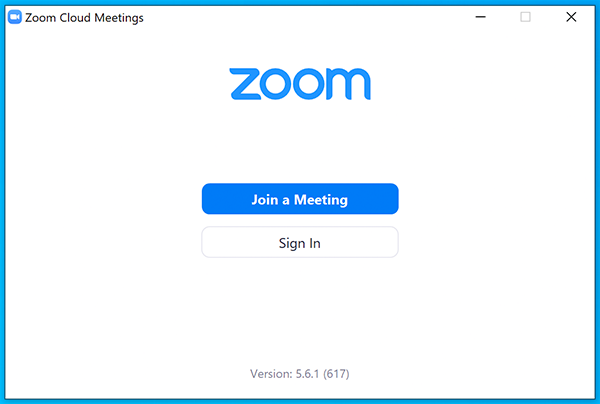
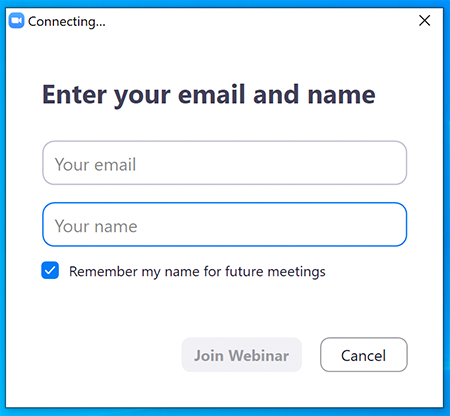
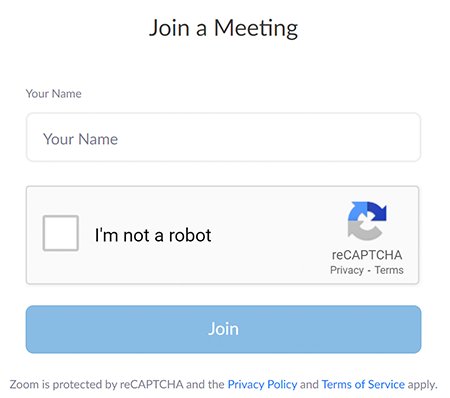
Moving Through Slides
Feedback & Links to Additional Resources
iCalendar File
Rehabilitation Act Notice for Reasonable Accommodation
Rehabilitation Act Notice for Reasonable Accommodation
It is EPA's policy to make reasonable accommodation to persons with disabilities wishing to participate in the agency's programs and activities, pursuant to the Rehabilitation Act of 1973, 29 U.S.C. 791. Any request for accommodation should be made to at or , preferably one week or more in advance of the webinar, so that EPA will have sufficient time to process the request. EPA would welcome specific recommendations from requestors specifying the nature or type of accommodation needed. EPA welcomes specific recommendations from requestors specifying the nature or type of accommodation needed. Please note that CLU-IN provides both alternate phone call-in options and closed captioning for all webinars, and requests for these specific accommodations are not necessary.
Webinar Recording
By participating in this CLU-IN webinar, you automatically agree to authorize recording of audio and visual content presented during this live event and consent to subsequent use of this recording in the public domain by the U.S. Environmental Protection Agency. This recording may include questions, comments and poll responses provided by you during the live event in addition to your name, voice, image or likeness. This recording will be made available after the conclusion of the live event as part of the CLU-IN webinar archives, and will remain available indefinitely. If you do not wish to consent to the recording, please do not join the live event, and contact Jean Balent at 202-566-0832 or balent.jean@epa.gov to discuss your concerns.
Content Disclaimer
This webinar is intended solely to provide information to the public. The views and opinions expressed as part of this webinar do not necessarily state or reflect those of the U.S. Environmental Protection Agency. It is not intended, nor can it be relied upon, to create any rights enforceable by any party in litigation with the United States, or to endorse the use of products or services provided by specific vendors. With respect to this webinar, neither the United States Government nor any of their employees, makes any warranty, express or implied, including the warranties of merchantability and fitness for a particular purpose, or assumes any legal liability or responsibility for the accuracy, completeness, or usefulness of any information, apparatus, product, or process disclosed, or represents that its use would not infringe privately owned rights.

